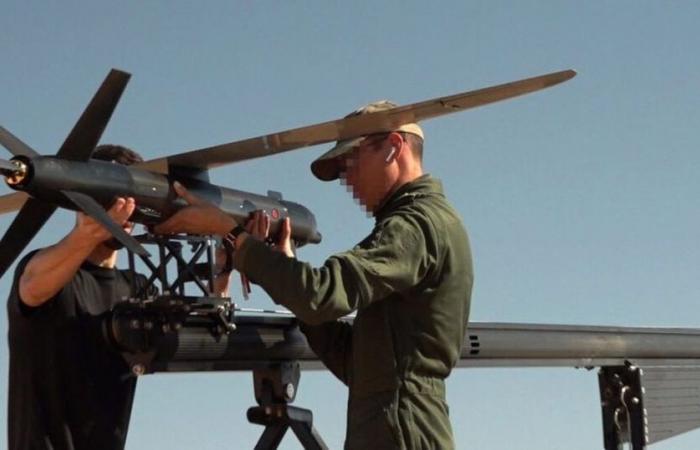
Hicham El Hafdi, former senior officer of the Royal Guard, geopolitical analyst and economic intelligence consultant, explains in detail, in this interview with Le360how the creation of defense industrial acceleration zones by Morocco is part of a continuum, and provides an exhaustive reading grid on the strategic advantages to be drawn from this giant step in terms of military industry.
Le360: according to you, what are the main objectives behind the creation of these defense industrial acceleration zones in Morocco?
Hicham El Hafdi: the creation of defense industrial acceleration zones is part of a continuum. This is the expected and natural continuation of a set of precursory signals, the most salient of which are the multiplication of partnership agreements with a set of public and private operators in the defense industry at the international level in recent years, the adoption in 2020 of Law No. 10-20 establishing the legal framework for the defense industry, and even more recently the allocation of a record budget of $12 billion for national defense under the finance law 2024, article 37 of which makes support for the development of the defense industry a major axis of this historic budgetary effort.
“Beyond the symbolic aspect carried by this announcement, there are also purely technical and operational aspects.”
— Hicham El Hafdi
The first objective is therefore to put words into action, by materializing the core of the Defense Industrial and Technical Base (BITD) that Morocco aspires to put in place. This action also makes it possible to send a strong signal to potential investors about the firm desire of the Moroccan State to develop this activity, and will also provide indications on the strategic priorities identified by the ad hoc national commission.
Beyond the symbolic aspect carried by this announcement, there are also purely technical and operational aspects. Thus, opting from the outset for a BITD structure in clusters makes it possible to promote the concentration and retention of skills and to encourage partnerships and innovation, since companies within a cluster tend to collaborate more easily. Also, the proximity of companies allows economies of scale through the pooling of certain resources, therefore reducing operational costs and increasing efficiency. Additionally, clusters often benefit from greater access to public and private finance, with investors more likely to support areas where they see concentrated growth and innovation potential.
Another important point, and not the least important, clusters enable a rapid and coordinated response to urgent defense needs. Indeed, the proximity of partners and suppliers makes possible greater responsiveness to the requests and requirements of clients.
“Aiming for autonomy, even relative, through a high rate of local integration in priority sectors, would be a major contribution of the announced industrial zones to our defense capabilities.”
How will these zones contribute to strengthening the country’s defense capacity?
One word to answer your question: sovereignty. I am not deluding myself, no country has a totally autonomous defense industry, but I like to give a pragmatic and realistic definition of this notion: it is a question of choosing one’s dependencies. In other words, Morocco will have to determine the sectors of the defense industry in which it aims to strengthen its autonomy. This will make it possible to protect national defense capabilities against exogenous factors which evolve according to geopolitical tensions, disruptions in global supply chains or even changes in legislation on the export of defense equipment.
Read also: The King chairs a council of ministers, here is what was decided there
Aiming for autonomy, even relative, through a high rate of local integration in priority sectors, would be a major contribution of the announced industrial zones to our defense capabilities. However, their contribution cannot be limited to this aspect alone. Their impact extends far beyond, as no defense industry can survive on domestic orders alone. Hence the need for export activities to ensure economic viability. These then offer a powerful soft power tool for countries exporting defense equipment, which can use them to project an image of power, or even as a negotiating lever to defend their national interests.
“It is plausible that munitions manufacturing attracts a significant share of initial investment, encouraged by the resurgence of the ‘stockpile war’ following the Ukrainian conflict.”
— Hicham El Hafdi
We can therefore expect, in the medium term, that the activities developed within the defense industrial acceleration zones will offer Morocco as many levers of influence and soft power, thus making new diplomatic openings possible, while strengthening already established partnerships, especially at the regional level.
What types of industries are likely to be located in these areas?
Officially, nothing has yet been revealed regarding the type of activities likely to be implemented in these areas. We can therefore only make hypotheses based on the various partnership agreements signed by Morocco in recent years, and draw some conclusions from the military lessons learned from recent conflicts.
Taking these different elements into account, it is plausible that the manufacture of munitions attracts a significant share of initial investments, encouraged by the strong return of the “stockpile war” following the Ukrainian conflict. Likewise, the progressive droneization of battlefields makes the different categories of drones a must have for modern armies. The agreements signed by the Kingdom already provide for the establishment of production units on the national territory.
“This would involve moving upmarket to repair increasingly complex modern equipment, such as the fleet of F16 fighters currently being upgraded to the Viper standard.”
— Hicham El Hafdi
In addition, by broadening the scope a little, we can also consider industrial activities relying on the existing automotive and aeronautical ecosystems. Dual applications offer a significant basis for embarking on assembly or manufacturing activities for troop transport vehicles or aeronautical components, for example.
Another priority investment could be the creation of maintenance and repair centers for military equipment. Although the Royal Armed Forces already have significant expertise in this area, it would be a question of moving upmarket to repair increasingly complex modern equipment, such as the fleet of F16 fighters currently being upgraded to standard Viper.
All these activities, and many others to come, could not, however, develop without being supported by dedicated training centers and dynamic and innovative research institutes. It is essential that future defense clusters do not neglect this fundamental aspect, and make it a driving force for the development of the sector. The State will have a major role to play in promoting the transfer of knowledge as a central element of industrial compensation mechanisms.
“Countries with a defense industry constitute a prestigious and closed club which enjoys very positive capital in terms of projected image and real and perceived power.”
— Hicham El Hafdi
What strategic advantages does Morocco hope to gain from this initiative in the field of defense?
In addition to the obvious advantages that we have already mentioned in terms of strengthening sovereignty and defense capabilities, developing the industrial fabric and increasing influence, I think that the strategic advantages expected from this initiative are reflected above all in terms of image and geopolitical positioning, the two being intimately linked.
Indeed, countries with a defense industry constitute a prestigious and closed club which enjoys very positive capital in terms of projected image and real and perceived power. This significantly impacts their geopolitical positions in the direction of greater empowerment, so as to be more consistent with the defense of national interests. In my humble opinion, it is at this level that the most significant advantages could be reaped in the medium and long term. The various sectoral success stories registered in Morocco’s assets under the reign of HM King Mohammed VI mark a momentum, a dynamic from which the nascent defense industry will be able to feed to achieve these objectives which are certainly ambitious, but far from unattainable. .
06/15/2024 at 2:12 p.m., updated 06/15/2024 at 2:32 p.m.





